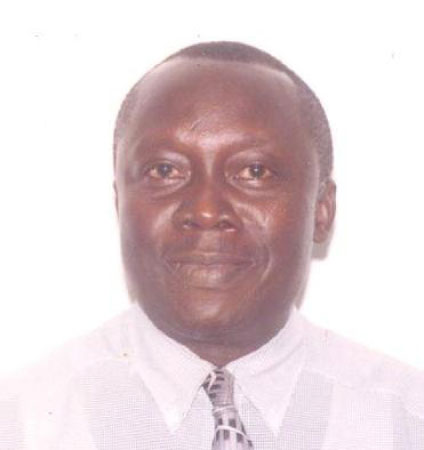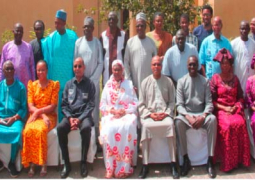
He further disclosed that the new department to be called Department of Cooperative, Agribusiness and Farmers’ Organisation, is expected to begin operation by next year.
The government, he said, wishes to regain the glory in the production sector and marketing of farm produce which agriculture was once known for.
Minister Owens made the disclosure in his opening remarks at the Taiwan-sponsored training of farmers on the execution plan of the upland rice consolidation project on 27 August this year at the Jenoi Farmers Training Centre in Jarra West, LRR.
The minister described the government decision as a helping tool to achieve the vision of the president to end the importation of rice in the next two years.
“The vision of the president is that by 2016, no more rice will come into the country. It is a vision to see this country producing and consuming rice that we grow in the country,” Minister Owens said.
“For income for farmers, for food sufficiency, for food security all over the world, cooperatives play prominent part of it.
“This is why at the level of the government, at the level of the cabinet, we have decided to bring back the department of cooperative and make it a fully fledged department of its own as it used to be.”
He continued: “We are working on the final cabinet paper to get that going and we hope that by next year with the approval of the cabinet we will be having a new department within the ministry responsible solely for cooperatives.”
To support the survival of this project and similar activities in the agricultural field, the minister observed the importance in reactivating farmers cooperative movement as well as extension service, which are both feeble.
“Cooperative movement in the country is dead and extension service is very weak compared to what it was 25 to 30 years ago,” he noted.
He remembered the days when farmers would produce up to 7 tons of rice per hectare with the intervention of the Chinese, which is no longer the case.
As it is now, he said, there is a need to ask: “Why are we still harvesting below 4 tons of rice per hectare?”
Similarly, he said, it was estimated that 80 to 90,000 tons of marketable groundnuts were produced during the past season, but only 30,000 tons went through the formal marketing system.
He said it is important to strengthen the cooperative movement because farmers can only benefit from their production if they realise the benefit that comes from effective and efficient marketing of their crops.
In addition to the total hands on deck at the Ministry of Agriculture, the Taiwanese are determined to render support to The Gambia to produce an estimated amount of 165kg of rice for each person living in the country annually to replace the amount imported per annum for consumption.
The Taiwanese Ambassador to The Gambia, Samuel Chen, said his country had sent to The Gambia experts to consolidate the previous technologies on the ground and enhance the operation of the newest technology called the Upland Rice Consolidation Project, to help achieve the vision of the president.
According to him, the ongoing 10-day training on the project is meant for the Taiwanese technical team to share their knowledge and experiences with over 73 participants some of whom are supervisors in the upland rice and irrigation projects and farmers’ groups.
He recognised the importance in not only creating farmers cooperative but also ensuring their effective running and functioning in the interest of the farming community.
“In agriculture, the market needs organisation that can promote the marketability of the agricultural product,” he said, adding that success in the agric business in his native country came through similar means.
Read Other Articles In Article (Archive)



